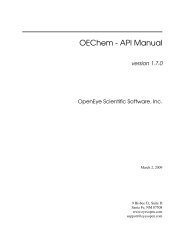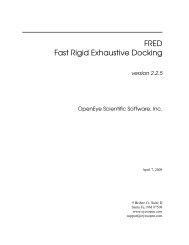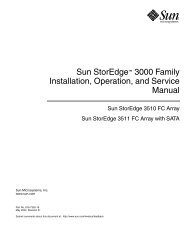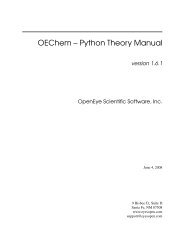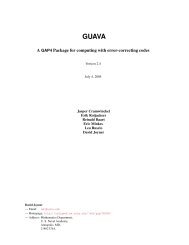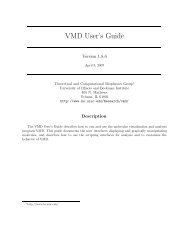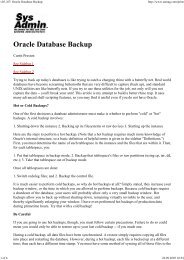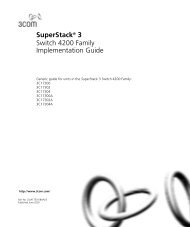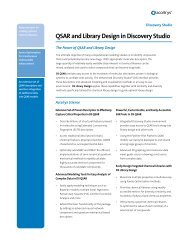Oracle SQL Developer
Oracle SQL Developer
Oracle SQL Developer
You also want an ePaper? Increase the reach of your titles
YUMPU automatically turns print PDFs into web optimized ePapers that Google loves.
<strong>SQL</strong> <strong>Developer</strong> Preferencesand the <strong>SQL</strong> query to retrieve information for the report (see Create/Edit UserDefined Report).You can organize user-defined reports in folders, and you can create a hierarchy offolders and subfolders. To create a folder for user-defined reports, right-click the UserDefined node or any folder name under that node and select Add Folder (seeCreate/Edit User Defined Report Folder).Information about user-defined reports, including any folders for these reports, isstored in a file named UserReports.xml under the directory for user-specificinformation. For information about the location of this information, see <strong>SQL</strong><strong>Developer</strong> User Information: Location.Related TopicsReportsCreate/Edit User Defined ReportCreate/Edit User Defined Report Folder<strong>SQL</strong> <strong>Developer</strong> User Information: Location1.10 <strong>SQL</strong> <strong>Developer</strong> Preferences1.10.1 EnvironmentYou can customize many aspects of the <strong>SQL</strong> <strong>Developer</strong> interface and environment bymodifying <strong>SQL</strong> <strong>Developer</strong> preferences according to your preferences and needs. Tomodify <strong>SQL</strong> <strong>Developer</strong> preferences, select Tools, then Preferences.Information about <strong>SQL</strong> <strong>Developer</strong> preferences is stored under the directory foruser-specific information. For information about the location of this information, see<strong>SQL</strong> <strong>Developer</strong> User Information: Location.Most preferences are self-explanatory, and this topic explains only those whosemeaning and implications are not obvious. Some preferences involve slight orperformance or system resource trade-offs (for example, enabling a feature that addsexecution time), and other preferences involve only personal aesthetic taste. Thepreferences are grouped in the following categories.The Environment pane contains options that affect the startup and overall behaviorand appearance of <strong>SQL</strong> <strong>Developer</strong>. You can specify that certain operations beperformed automatically at specified times, with the trade-off usually being the extratime for the operation as opposed to the possibility of problems if the operation is notperformed automatically (for example, if you forget to perform it when you should).The undo level (number of previous operations that can be undone) and navigationlevel (number of open files) values involve slight increases or decreases systemresource usage for higher or lower values.Automatically Reload Externally Modified Files: If this option is checked, any filesopen in <strong>SQL</strong> <strong>Developer</strong> that have been modified by an external application areupdated when you switch back to <strong>SQL</strong> <strong>Developer</strong>, overwriting any changes that youmight have made. If this option is not checked, changes that you make in <strong>SQL</strong><strong>Developer</strong> overwrite any changes that might have been made by external applications.Silently Reload When File Is Unmodified: If this option is checked, you are not askedif you want to reload files that have been modified externally but not in <strong>SQL</strong><strong>Developer</strong>. If this option is not checked, you are asked if you want to reload each file1-28 <strong>SQL</strong> <strong>Developer</strong> Online Help



